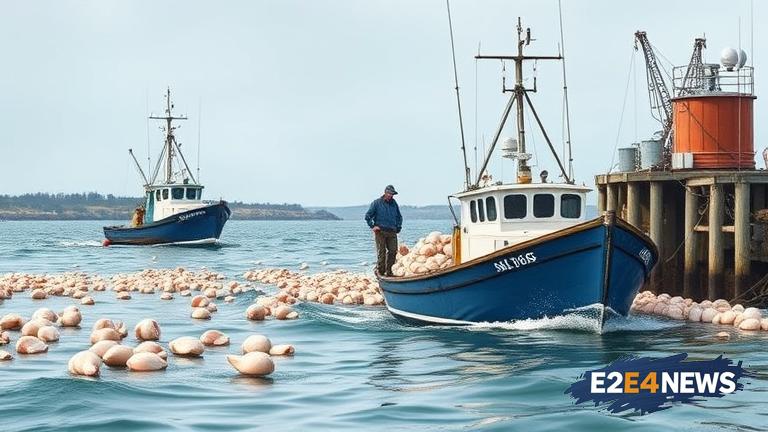The scallop industry in Massachusetts is experiencing a significant surge, with fishermen eager to tap into the lucrative market. However, they are facing numerous regulatory hurdles that hinder their ability to access the abundant waters. The fishermen are now seeking to cut through the red tape and simplify the permitting process, which they believe will enable them to increase their catch and contribute to the local economy. The scallop population in the area has been thriving, thanks to conservation efforts and favorable environmental conditions. As a result, the demand for scallops has increased, driving up prices and creating new opportunities for fishermen. Nevertheless, the complex regulatory framework is limiting the number of fishermen who can participate in the industry. The current system requires fishermen to obtain multiple permits and comply with various regulations, which can be time-consuming and costly. The fishermen are advocating for a more streamlined approach, which would allow them to focus on fishing rather than navigating the bureaucratic process. They argue that the existing regulations are outdated and fail to account for the current state of the scallop population. By simplifying the regulatory framework, the fishermen believe they can increase their catch, create new jobs, and stimulate economic growth in the region. The Massachusetts fishing industry has a long history, and the scallop fishery is one of the most valuable in the state. The fishermen are committed to sustainable fishing practices and are working to ensure that the scallop population remains healthy for future generations. The booming scallop industry is not only beneficial for the fishermen but also for the local communities, which rely on the industry for employment and economic activity. The increased demand for scallops has also led to the development of new businesses, such as seafood processing and distribution companies. Furthermore, the scallop industry is playing a crucial role in promoting tourism in the region, with many visitors attracted to the area’s seafood restaurants and festivals. Despite the challenges posed by the regulatory framework, the fishermen remain optimistic about the future of the industry. They are working closely with state and federal authorities to address the regulatory issues and create a more favorable business environment. The fishermen are also investing in new technologies and equipment to improve their fishing practices and reduce their environmental impact. In addition, they are engaging with local communities to promote the importance of sustainable fishing and the benefits of the scallop industry. The Massachusetts government has acknowledged the importance of the fishing industry and is taking steps to support the sector. The state has implemented various initiatives to promote sustainable fishing practices, improve fisheries management, and enhance the economic viability of the industry. The fishermen are hopeful that these efforts will lead to a more streamlined regulatory framework, allowing them to capitalize on the thriving scallop market and contribute to the local economy. Overall, the Massachusetts scallop industry is poised for significant growth, and the fishermen are eager to play a key role in shaping the future of the sector. With the right regulatory framework and support from state and federal authorities, the industry is likely to continue thriving, providing benefits for both the fishermen and the local communities.
